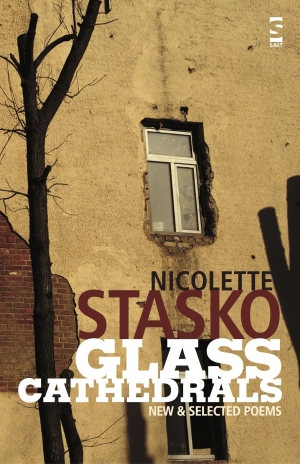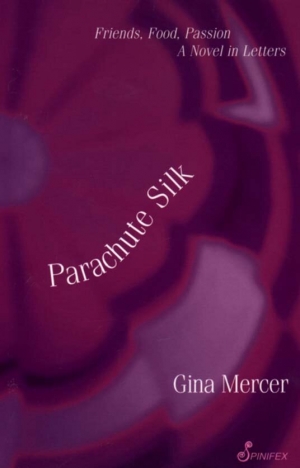Nicolette Stasko
Adrian Caesar reviews 'Glass Cathedrals: New and selected poems' by Nicolette Stasko
Nicolette Stasko’s poetry is as far from the postmodern baroque as it is possible to be. This is not to say that her work lacks awareness of contemporary theories of art, but rather that her style eschews self-consciously clotted imagery, radical syntactical dislocation, and the production of high-sounding obscurities. There is nothing rebarbative here. At their best, the limpid surfaces of these poems invite the reader into aesthetic experiences where the pictorial is rendered with such clarity that the images resonate deeply. As we might expect from a poet who writes one of her best sequences in response to Cezanne and another following Van Gogh, the most satisfying of these poems recreate that moving stillness characteristic of figurative painting.
... (read more)Nicolette Stasko reviews 'Parachute Silk' by Gina Mercer
There is little doubt that few people write letters anymore. Nowadays, personal communication is conducted via e-mails and mobile phone messages, much to the dismay of manuscript collectors and researchers. So, it is surprising to come across what the publishers describe as ‘a novel in letters’, Parachute Silk, by Gina Mercer.
... (read more)Nicolette Stasko reviews 'The Front of the Family: A Tale of Two Sisters' by Renata Singer
The main character in Renata Singer’s novel, The Front of the Family, says ‘What’s past is passed.’ We only have a brief encounter with her before she slumps over dead in her old terry-toweling dressing gown in front of the television. But, in the tradition of Faulkner’s As I Lay Dying, the narrative continues to revolve around the present absence of Zosha Feldman, her past, her life and her complicated relationship with her two daughters, Felunia and Miriam. Indeed, the central question of the novel is whether the past is ever past. As another character remarks, ‘some things you can’t talk about. You can only talk about what you can think about. Better not to think about some things.’
... (read more)


